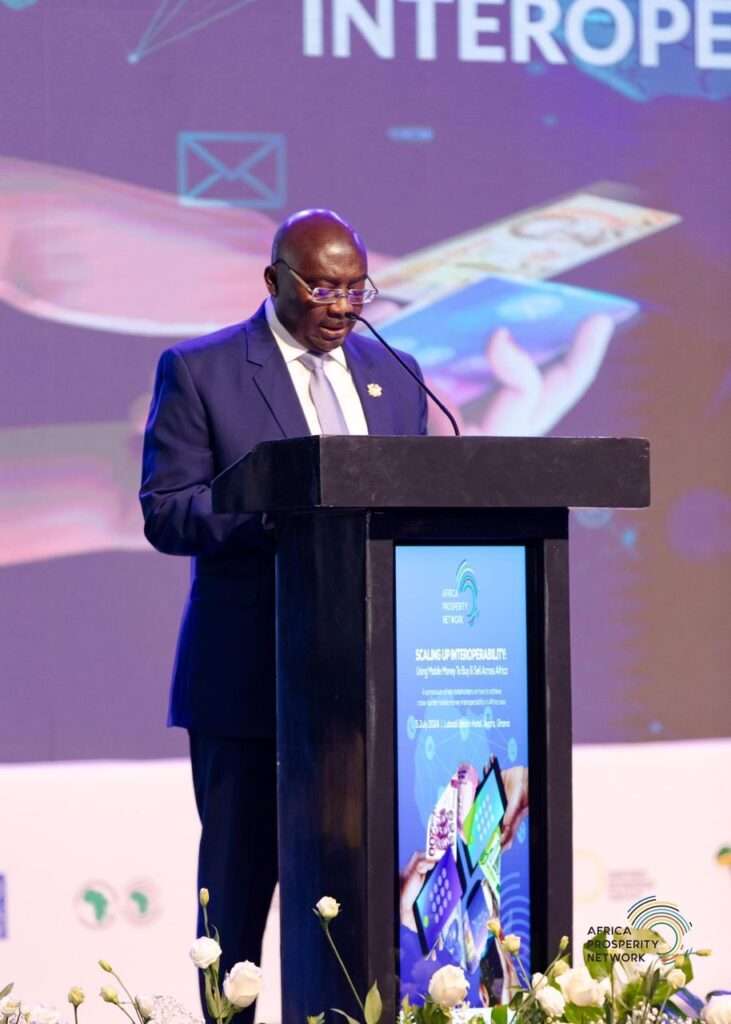The proposal by Vice President Dr. Mahamudu Bawumia, the New Patriotic Party (NPP) presidential candidate, to introduce a national credit scoring system in Ghana has been hailed as a transformative initiative by Dr. Frank Bannor, a Development Economist and the Head of Research at the Danquah Institute (DI).
Dr. Bannor emphasized the significance of this plan, stating that it could revolutionize the country’s financial sector and promote economic inclusivity. Dr. Bawumia’s proposal, which he unveiled recently, aims to make mobile phones more affordable for Ghanaians through a structured payment system. This plan, he suggested, would significantly boost digital inclusion and economic participation across the nation.
“The proposed national credit scoring system by Dr. Bawumia is a game changer. It will provide a fair and uniform means of assessing creditworthiness, which is essential for individuals seeking loans, credit cards, and other financial products. It would make life more dignified and comfortable for Ghanaians.”
Dr. Frank Bannor, a Development Economist and the Head of Research at the Danquah Institute (DI)
Dr. Bannor highlighted that the implementation of this system would mark a significant departure from the prevalent informal practices and the “high purchase system,” which often relies on ad-hoc installment payments without a structured credit assessment process.
Dr. Bannor cited the example of Absa Bank, which utilizes a credit scoring system for its Visa credit cards. This standardized assessment helps financial institutions make informed decisions on credit issuance and risk management, ensuring a more efficient and fair financial system.
Dr. Bannor drew parallels with South Africa’s successful implementation of a credit scoring system. He indicated that Vice President Bawumia has the potential to replicate a similar system in Ghana.
“Because of the credit scoring system in South Africa, it is helping them. It is benefiting underserved communities and small businesses, who previously faced challenges in accessing loans due to inadequate credit histories or lack of collateral.”
Dr. Frank Bannor, a Development Economist and the Head of Research at the Danquah Institute (DI).
With a clearer understanding of their creditworthiness, these groups in South Africa can secure funding to invest in education, housing, and entrepreneurial ventures, thereby stimulating economic growth and reducing poverty levels. Dr. Bannor expressed confidence that Ghana could achieve similar outcomes with the proposed system.
Potential Impact on Economic Growth and Stability

Dr. Bannor elaborated on the various benefits of the credit scoring system, explaining that it would enable financial institutions in Ghana to evaluate an individual’s creditworthiness based on crucial factors such as credit history, income, debt levels, and repayment behavior. Such standardized evaluations would streamline the process of determining eligibility for loans, credit cards, and other financial products without requiring upfront payment.
“The credit scoring system will play a crucial role in promoting financial discipline among consumers. Encouraging responsible borrowing and repayment behaviors, it will contribute to improving credit profiles and fostering a healthier financial environment overall.
“This, in turn, will attract more investors and lenders into the market, creating a cycle of economic empowerment and sustainability.”
Dr. Frank Bannor, a Development Economist and the Head of Research at the Danquah Institute (DI).
Dr. Bannor believes that the introduction of a national credit scoring system would ultimately contribute to economic growth and stability in Ghana. He expressed optimism that if Dr. Bawumia wins the 2024 presidential elections and effectively executes this initiative, it would pave the way for a more inclusive and resilient financial ecosystem in the country.
The proposed system is expected to enhance financial inclusion, providing more Ghanaians with access to credit and other financial products. By establishing a reliable credit scoring mechanism, the initiative would help reduce the reliance on collateral for loan approvals, making it easier for small businesses and individuals to secure funding.
Dr. Frank Bannor’s endorsement of Dr. Mahamudu Bawumia’s national credit scoring system proposal underscores the potential for this initiative to transform Ghana’s financial landscape. With widespread support and effective execution, this plan could serve as a cornerstone for economic growth, stability, and inclusivity in Ghana.
READ ALSO: Ghana’s Economy Progressing Steadily Amid Challenges





















